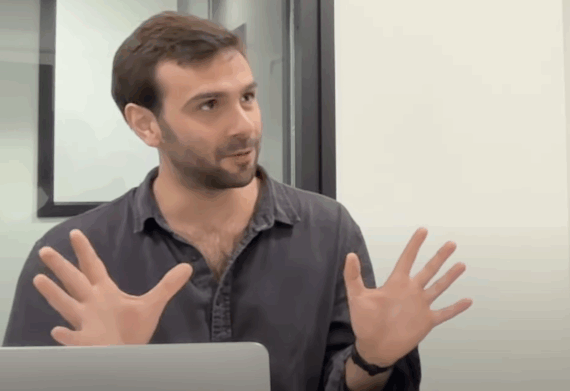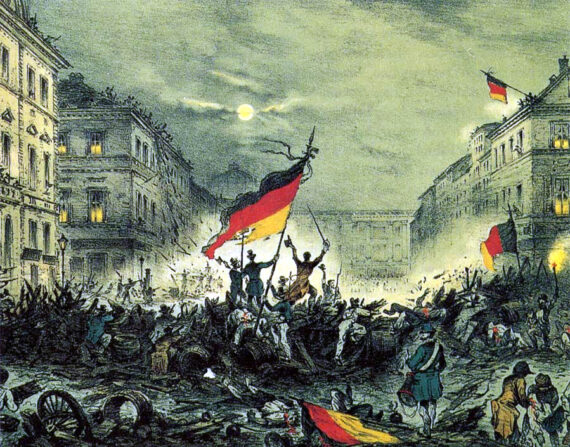Foucault does not merely flirt with the vocabulary of Capital volume 1 but proposes instead to expand the Marxian theory of capitalist exploitation by analyzing the techniques of power that constitute proletarians as productive—and thus exploitable—subjects. [Continue reading here…]
Communist Manifesto
Lenin’s April Theses can be seen as a rewriting and completion of the Communist Manifesto. This continuity becomes apparent in two prefaces Marx and Engels wrote for later editions of the Communist Manifesto. Let me begin with the preface to the edition of 1872. [Continue reading here…]
The Communist Manifesto enclose within it traces of the uprisings that birthed it. It is a document whose theories arise from and are amended by social movements. Importantly, it is written for the ordinary worker, who as Engels commented in its 1888 English preface, acknowledged it as their “common platform…from Siberia to California.” It is in this specific sense of a document arising from a movement that we chose to call our work a “manifesto”, for, although in a less grand scale, our manifesto too arose from the wave of feminist strikes, and both contributed to and were recalibrated by them. In this brief reflection I hope to draw out some of the ways in which our Manifesto stands in the tradition of Marxist theorizing of capitalism, and in one key way makes a contribution to it. [Keep reading here…]
For the longest time, I thought that Marx and Engels were basically right. It seemed to me that our history was that of a constant struggle between a dominant class and a dominated class. The feminist, gay, queer, and trans* revolutions, Black Studies in the US, abolitionism – all these social and intellectual movements transformed the idea of class struggles. But I always managed to fit them roughly into a certain binary, between the dominant and the dominated, between the unjust and the just. Whether it was historically dominated women versus dominant men, or African-Americans versus Whites; whether it was historically dominated queer people versus historically dominant straight people, and so on. I was always in the grip of a certain binary class struggle between dominant and dominated. Today, I am no longer convinced… [keep reading here]




